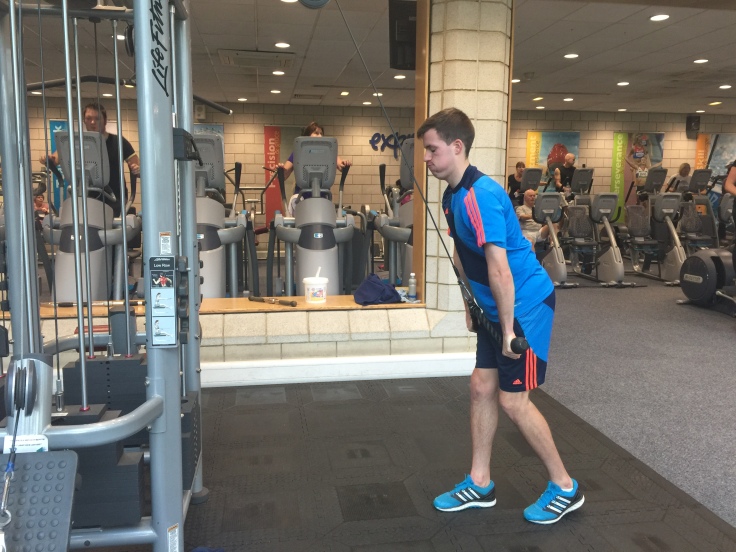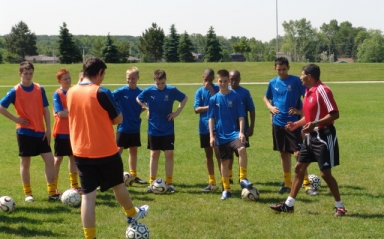In recent times, there has been a widespread call for more young coaches to come into the football scene. But why is there a lack of young coaches? Harry Buckley investigates

Harry Butler’s experience of becoming a football coach is somewhat systematic of the football system. A very good footballer himself who had been at various clubs with nothing really working out. Then after going through the hurt of rejection after rejection he resorts to looking to get into the football arena in some other capacity through his past ventures. Harry now 21 but from a young age, helped out coaching his younger brothers football team, where he ultimately drew inspiration from his enjoyment working with youngsters and their improvement brought satisfaction and his passion within. More than 4 years into his coaching he now works at Chelsea Football Club, after years of hard graft getting up on early mornings to help train local teams. Harry recalls how his dad was a big inspiration in getting him into coaching and since then he has never looked back. “At 16 my dad put me on a level 1 football coaching course and I loved it. It reminded me of when I was 8 again and that’s how I realised it was what I wanted to do.”
Harry’s progression from football player to football coach is a large phenomenon as the number of coaches is at an all time low, just like the playing figures. Henry Winter, an academic who covered the issue of grassroots football extensively, notes: “There needs to be more investment put into coaching. As well as more coaches and better equipment and facilities, such as 3G pitches.” Those playing the game have dropped, as of statistics from 2014, to 1.83 million, down 100,000 since April 2013, according to a recent survey by Sport England. It’s then no surprise to learn that football at grassroots level is experiencing a challenging period. The romanticised notion of games being staged on pitches resembling mud baths, players getting changed in the most basic of facilities, and on going problems with the retention of referees, may provide suitable material for post-match anecdotes but the reality of this situation does amateur football no favours.
As newly appointed Football Association (FA) chairman Greg Dyke put it at the launch of an ambitious project taking place in 30 cities across the country ‘English football is a tanker that needs turning, but it is time for change’. This dim assessment of the current football system in England, consequently led to the introduction of trust-run hubs filled with 3G pitches planned on local-authority sites in cities across the country at the cost of £230 million. They have also promised to increase the number of top-quality Artificial Grass Pitches (AGPs) in urban areas by 130% to over 500 with a 50% increase in the total number of full-size, publicly-accessible 3G AGPs in England to over 1000. Meanwhile, the FA has frequently noticed that without good coaches, whom have the required facilities, they cannot expect to produce good players. Successive FA Coaching Strategies in 2008 and 2013 recognised that there were not enough coaches in grassroots or academies, coaching as a career wasn’t well structured or rewarded, that the quality of coaches and coach education was still very mixed and that the overall structure of coaching across England was fragmented and not particularly clear.
Harry explains his view of why there is a shortage of coaches. “I think less people are turning to coaching because they do not realise you can make a career out of it and its not advertised as much as it could be. Also some people may find they are good players as well as a good coach so I think that affects it to as many choose to be a player as there is perceived to be more opportunities. In addition, it is very competitive as there are not that many teams to coach so you have to always be on the top of your game. This results in many people thinking they will not go far in the coaching arena because of how challenging it can be and end up giving up.”

Some football academics see the struggles of coaching as a consequence of grassroots football dying of poverty. Stephen O’Reilly, secretary of Liverpool junior summer league, told ‘The Mirror’ he believes the big clubs should do more: “Bill Shankley used to come out of Anfield and watch the kids playing football here. Those days are gone. The Premier League should be looking after these leagues, where your Gerrards and Rooney’s all started.” Stephen added: “All our equipment is kept in the storage container, there are dogs running across the pitches and there are no toilet facilities or hot water. Football is a religion here. But now it’s all about money, money, money.”
The dedicated volunteers who coach youth and Sunday league sides up and down the country, just like Harry, feel they should get more help from the FA and the game’s wealthy clubs. Nationally, the Premier League currently spends £168 million on community programmes and facilities, a fraction of the billions they make from broadcasting rights. Henry Winter, says: “There are great volunteers who sacrifice their time and hardwork to ensure youngsters have a enjoyable and football development rewarding time. But the volunteers are always swimming against the tide as grassroots football, coaching in particular, has insufficient investment from the FA and many local authorities, plus the government.”

Many coaches have to buy their own equipment and follow strict Football Association’s (FA’s) guidelines with the fairly recent introduction of The FA Youth Awards in 2009 and a new approach to youth coaching with “Raising Our Game” and “The Future Game” in 2010. These have changed coaching massively and have added to the high pressures and demands on Harry’s coaching. “You must please parents and kids with good sessions, all equipment must be immaculate- balls clean, cones clean, coloured bibs etc. and you must look good by dressing well as you’re a role model for whoever your coaching. You must make your boss proud and make sure your progressing as a coach, while following the FA’s rules and regulations. There’s a lot to cover and all of this must be done with the best organisation and strategy as it is key to dealing with the pressure and high demands of being a coach.”
Whether the pressure coaches put on themselves to succeed is too great or there are other reasons for their struggle to develop the youngsters coming through, the public’s perception of football’s governing bodies is at a detrimental low. A recent Sky Sports survey about the difficulties in participating in the sport at a local level, either playing or coaching shows that poor quality pitches and a lack of provisions from local authorities are the main issues. More than 2,500 people responded to the survey and over 65% of respondents said they did not think local councils did enough to support facilities and the costs of low-level football, and 83.7% said the FA do not do enough to preserve the grassroots game. Many people highlighted not enough coaches in the game as a result of insufficient funding as one of the key negatives. One of the respondents, Trevor Graham, comments on the state of grassroots football to Sky sports: “There needs to be wholesale changes to grassroots football. I hope the FA and local FA’s do sort this out as I’ve played, managed and run football clubs at most levels and its all a total nightmare. Hard choices need to be made if we are serious about getting things right.”

David Crausby, Bolton MP, points out that £835 million was spent by Premier League football clubs during last summers transfer window, £757 million was spent building Wembley Stadium and £105 million was spent on St George’s Park training complex, making English football seem awash with money. Yet, as he highlights, amateur and grassroots football leagues up and down the country are dying because of rising costs and poor facilities, as more and more young people turn their backs away from playing and coaching our national game. Consequently, Crausby, has set up ‘The Save Grassroots Football’ campaign calling on the government to work with the FA and the Premier League to ensure that 7.5% of broadcasting rights is committed to grassroots football.
He said: “I’ve heard stories from around the country about fees being too high for ordinary families to pay, poor quality pitches, and the absence of decent changing facilities and I’m very pleased to see the campaign continue to grow and become a part of the national conversation about football. Now that we have reached more than 10,000 signatures the Government will have to respond and I will be looking at their response closely to see if there’s any movement in their position.”
Harry being only 21 finds coaching can occasionally be challenging and a struggle as he is tasked with coaching youngsters that are not much younger than himself but sees this changing. “I find at the moment working with young people aged from 15 above a challenge as they know I am not much older than them and they feel they can take advantage of that. As I get older though I think this will happen less as I will have more authority and gain more respect.” Meanwhile, the fact that there is not enough coaches around sees Harry tasked with coaching a huge number of youngsters at one time, which is a very demanding and something David Crausby with the help of the FA is trying to put right, as mentioned earlier. Harry says: “I find working with really large groups hard as it is tough to control a really big group and it is difficult to satisfy everyone. While tendering to all the youngsters different needs and catering for all their abilities.”
Even though many young adults who enjoy football are not turning to coaching for various reasons, Harry loves the job he chose to pursue and wouldn’t want to be doing anything else. “I enjoy working with youngsters and seeing them improve is an amazing feeling. I feel it benefits my personal skills working with different ages and it also benefits a coach parent relationship. I loved coaching from a young age without really knowing it and I think that’s given me the enjoyment and passion for it.”

Leave a comment